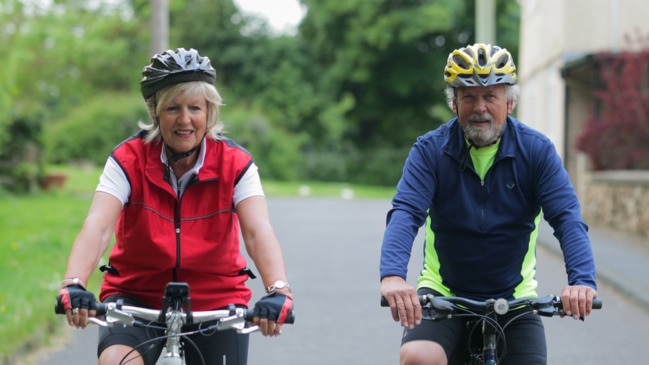Getting ahead of the traffic with e-bikes
Host of south Brisbane's Changing Climates series, Dr Christa Pudmenzky, explains how transport emissions contribute to warmer local January temperatures. Plus, how eco-friendly e-bikes play a part in a sustainable future,

HyperLocal
Don't miss out on the headlines from HyperLocal. Followed categories will be added to My News.
Climate change is bringing warmer temperatures and more extreme weather across the country.
We can see these impacts here in Queensland – the hottest January day is now 1.3C warmer compared to the 1970s.

The main driver of changes in our climate are greenhouse gas emissions from human activities and industries.
In Australia, the transport sector is second only to the energy sector in generating fossil fuel emissions, making up nearly one fifth of our total emissions.
Therefore, minimising our transport footprint is key to reducing our overall carbon footprint and limiting the impacts of climate change.
Part of a sustainable transport solution lies with electric bikes (e-bikes), which provide an easy, economical and environmentally-friendly way of getting around town.
The e-bike solution:
Australia is one of the most urbanised countries in the world, meaning nearly 90 per cent of us live in cities with access to extensive cycling paths.
We have more than 100,000 bicycle routes across the country, equivalent to over three million kilometres of road – that's enough to get you to the Moon and back four times!
For those of us with a longer commuting distance, or who don't have the pedal power to sweat it out on a traditional bike, e-bikes offer the perfect solution.
They can help increase your riding confidence and allow you to travel further, opening up an array of exciting cycling adventures.
In fact, studies have shown people with e-bikes often ride further and more frequently than other cyclists.
And they are only becoming more popular.
E-bike sales tripled in Australia between 2016 and 2019, according to Peter Bourke, General Manager of Bicycle Industries Australia.
In addition, bike share schemes are on the rise across our capital cities, giving residents a flexible transport option.

E is for easy, environmental and economical:
New research suggests that using e-bikes instead of cars can cut millions of tonnes of carbon emissions each year.
Not only are they environmentally friendly, they also come with a suite of economic and health benefits.
Using an e-bike instead of a car can save you up to $14,000 a year by reducing costs associated with maintenance, parking, and insurance.
For those who have longer distances to travel, linking up your e-bike with public transport is another great option that can produce savings of up to $12,000 each year.
Cycling also has benefits for our health and wellbeing – it's an easy way to get your legs moving and clock up your daily exercise.
As more people get on e-bikes, we'll have fewer gas guzzling cars on the road, reducing pollution and improving air quality.
This means lower pollution-associated health risks and fewer people suffering from pollution-related diseases such as stroke, heart attack and lung cancer.

A clean green future
E-bike sales are only accelerating, with the Australian e-bike market projected to grow by another seven per cent between 2021-2026.
This figure is only going to rise with further implementation of e-bike friendly initiatives and policies, creating incentives for older Australians in particular.
Ultimately, the growth of e-bike use can help reduce our carbon emissions and pedal us towards a cleaner, greener future.
Want more information on how your climate is changing? Check out the last article in this series.
Dr Christa Pudmenzky is a climate scientist at the University of Southern Queensland.
This column is part of a collaboration between Monash University and News Corp to deliver hyperlocal weather and climate information.


